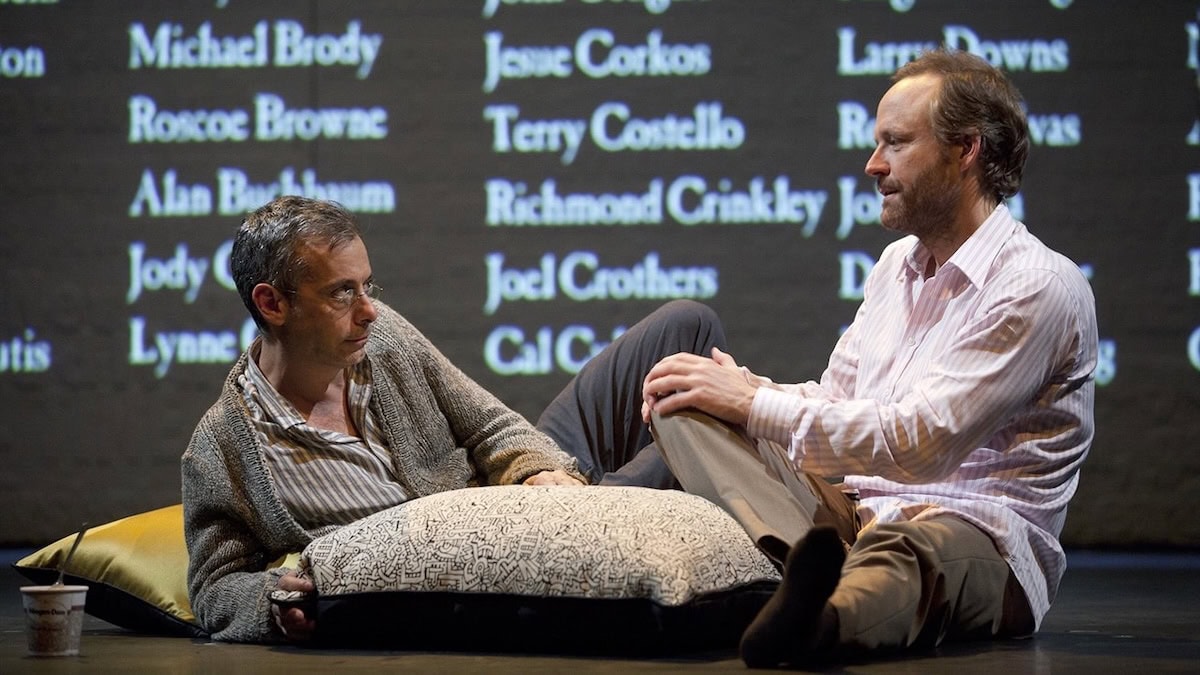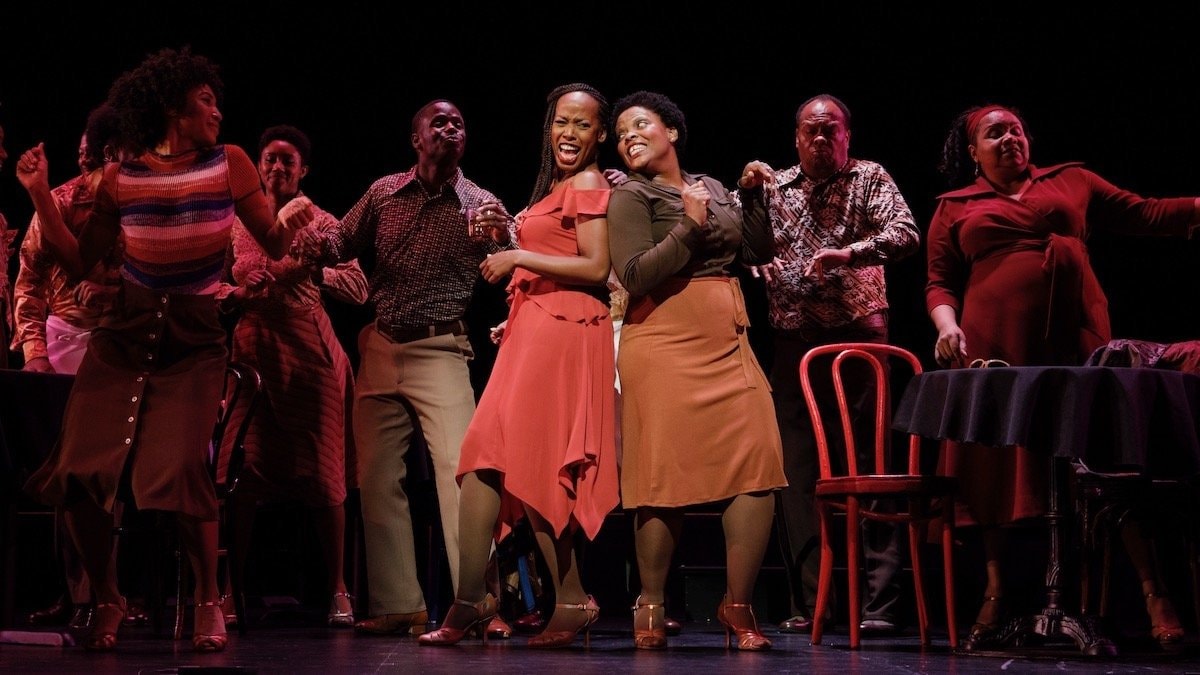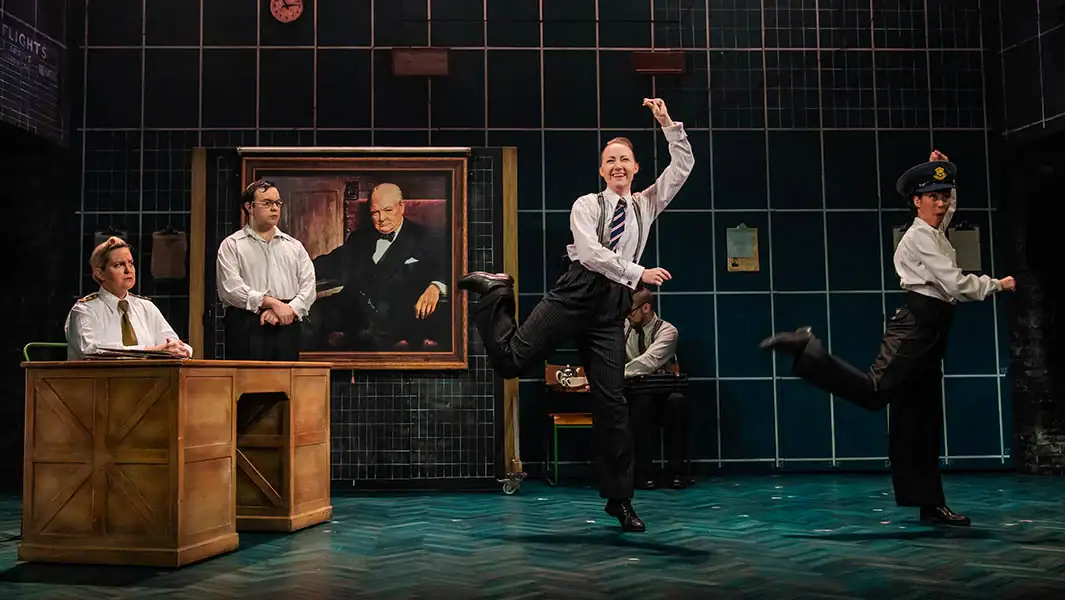
As all of us in the performing arts adjust to a new era, Concord Theatricals is reaching out to some of our authors for their personal reflections on Art in a Time of Crisis. (For other pieces in this series, click here.)
Award-winning Irish playwright Jaki McCarrick, author of Belfast Girls, Leopoldville and The Mushroom Pickers, among other works, reflects on the art to which she has turned during this period, from literature and visual art to television drama.
…
Since lockdown began in Ireland (around mid-March), I’ve been working on my debut novel, The bright bright world, and have come to the conclusion that during this current crisis, fiction writers are luckier than dramatists. Fiction suits social isolation, in terms of composition and reception. Drama, conversely, depends on the opposite – at least in terms of reception: the rehearsals for, and staging of, a play; the making and showing of a film, etc. While the writing of drama is as much a solitary act as the writing of fiction (and poetry), rehearsals and the eventual sharing of the work with an audience are just as vital to the drama-making process, and Covid19 right now prevents either of these from happening (audiences, of course, are still possible for TV and radio).
Another difficulty facing dramatists at this time is motivation, a reason to write at all. Many plays come about via commissions, and the awful truth of the current Covid19 situation is that few playwrights are likely to be commissioned by artistic directors uncertain of their theatre’s very existence in a few months time. There is also the worry that once lockdown has ended, and theatres (the fortunate ones) are up and running again, that to recoup losses incurred by lockdown and a reduced-in-size, socially distanced audience, it may not be to edgy, experimental plays that theatre programmers turn – but to tried-and-tested plays, stories and ideas, though, hopefully, this will not be the case with all theatres.
Hence, even to begin a new play, especially if non-commissioned, in this time of Covid, is a complete act of faith, and I salute all who begin and finish new dramas during this time. Once my novel is finished, I aim to complete my (non-commissioned) adaptation of Ibsen’s Lady from the Sea, and also another play, a development of my short work Tussy (about Eleanor Marx) into a longer play.
The novel I’m reading at the moment is Fingersmith by Sarah Waters – a multi-narrative work, written in two separate tenses (Part One is written in the past tense, Part Two in the present). I had Waters’ book for ages but never got to it, and have done so recently because my own novel is also multi-narrative and had, until recently, shifts in tense. I wish I’d read Fingersmith years ago. Water’s work is a stunningly-written exploration of female agency (and the lack of it) in Victorian England – and I’ve thoroughly enjoyed reading it.
But I’ve also had a lot of questions about where we – the human race – are now, and at times I did not know the exact questions I was asking, never mind the answers, so I seemed to be drawn to works that I already knew were explorations of crisis situations, possibly looking for answers there. One of these is perhaps my favourite collection of essays about theatre, Antonin Artaud’s The Theatre and its Double, which includes the brilliant essay, ‘The Theatre and the Plague’. ‘Once the plague is established in a city, normal social order collapses,’ Artaud writes. In this fascinating essay, Artaud posits an interesting theory on viruses and plagues: ‘all great plagues last five months, with or without a virus, after which the virulence dies down’. His thinking here is due, he claims, to consultations with an unnamed surgeon; it would be fascinating to know who this surgeon was, and how they arrived at such an analysis of the plagues and viruses that have entered the human community over the centuries. But Artaud does not reveal his source.
In this same essay, Artaud also refers to St Augustine’s City of God, so as to create an analogy between pandemics and theatre: ‘The plague, which kills without destroying any organs, and theatre, which, without killing, induces the mysterious changes not only in the minds of individuals but in a whole nation.’ In this essay and throughout his book, Artaud clearly expresses a passionate belief that theatre is an intrinsic human need, going back to the Greeks and before. I believe this to be the case, also. So one wonders how long society can go without this ancient artform, one which, over the centuries, has brought understanding, awareness, catharsis to entire nations, and is clearly very much needed – psychologically as well as artistically. I for one am keen to get into a theatre space as soon as possible.
During this period I thought also about plays that might be easily staged, without set, or costume, or even audience. Texts in which ‘the stage’ can actually be an imagined space – such as Sarah Kane’s 4:48 Psychosis, a poem-play, and another piece of writing that pre-empts the current sense of crisis in the world, one with which those of us in, or emerging from, lockdown can relate:
I am sad
I feel that the future is hopeless and that things cannot improve
I am bored and dissatisfied with everything
Though it might seem counter-intuitive, it was not to happier, more lyrical works I turned during this time, as if such works – for me at least – did not have the same ability to chime with the troubles and absurdities of the current moment, as did more Jacobean/baroque/Gothic/absurdist texts. These are, after all, strange, disruptive and painful times, during which hundreds of thousands of people have died around the world and millions have become infected. I guess you either choose artworks that help you escape such times – or go to works that help you feel them deeply, in order to mine some meaning out of the situation, should there be any meaning to be had. I have been attracted mostly to the latter variety of art.
I also found myself thinking about the work of visual artist Nancy Spero, whose work I saw in the Serpentine Gallery in London a few years ago. Spero was also influenced by Artaud. Her work explores issues to do with female agency, subjugation, crisis. As with Sarah Kane, Spero’s work expresses alienation and pain – in particular in her striking Codex series.
In terms of TV drama, I particularly enjoyed the magnificent Devs by Alex Garland. Stunningly shot, it is about a San Francisco-based tech genius who sets out to use technology to explore the theory of determinism. Again, the philosophical slant of the series – which quoted Philip Larkin and Shakespeare – was perfect for an audience plunged (involuntarily) into a period of self-reflection. In that respect, Devs might not have been everyone’s cup of tea, but I loved it.
As I write
this, the horrific murder of George Floyd in the US has sparked off protest marches around the world, including several in Ireland. The statue of slave trader, Edward Colston has today been toppled in Bristol. Such a show of solidarity against racism might not have been possible were it not for the forces unleashed by Covid and Floyd’s murder. Once again I find myself thinking about Artaud’s essay:
The plague takes dormant images, latent disorder and suddenly carries them to the point of the most extreme gestures … Such a complete social disaster, such organic disorder … indicates the presence of a condition which is an extreme force and where all the powers of nature are newly rediscovered …
Could it be that in a crisis such as Covid19, the possibility exists of renewal, of bringing, as Artaud states, ‘latent disorder’ to the fore, like a risen boil, ready to burst? In which case, perhaps the theatre landscape will also be changed for the better by Covid19; perhaps we will see in the years to come greater gender balance in theatre structures and in playwriting, more diverse programming, a more impassioned questioning of the status quo, of the travesties of the past and present. Or perhaps not. It is of course naïve and ahistorical to think that human beings learn anything at all from crises, though I suspect (and hope) Artaud may be on to something.
…
Concord Theatricals proudly licenses plays by Jaki McCarrick in the UK and Europe. To learn more about the author and her work, visit her page at concordtheatricals.co.uk.

The Truth Behind… The Normal Heart

Musical Revues

